A buoy, green and white, bobs gently on the glassy waters off Lambert’s Cove. Tegan Gale, just a few weeks out of high school, drops the throttle on Watch Out, his 28-foot Menemsha lobstering vessel. He ducks from behind the wheel and grabs a rusted retriever pole set on the starboard flank of the boat.
Then, in a single motion, as Watch Out glides past the buoy, he dips the retriever pole into the water, drags the buoy onto the deck and spins the line around a winch. Seconds later, the winch has hauled a full lobster trap off the floor of Vineyard Sound. It’s heavy with a full catch — four New England lobsters.
“This is when lobstering is fun,” Tegan says, prying the lobsters from the trap. “That’s a good one. That’s how it gets so addictive.”
Tegan Gale is one of four young Island men who have bought into the lobstering business in the past two years. Three are in their early 20s; Tegan recently turned 18. He graduated from the regional high school in June.
“I knew I wanted to make a living being my own boss, so lobstering, even though it’s really hard work, seemed like a good way to do that,” Tegan says. “It’s really rewarding to go catch something and sell it, and get money for something you harvested.”
One by one the traps come up off the seafloor. They carry conch, sea bass, scup and spider crabs, though Tegan only has the permits to keep the lobsters. Into each trap he slings a mesh sack filled with rotting skate. He straps the cage shut and with a single shove it passes over the side of Watch Out, sinking back into the water.
In most of the cages, there’s just one thing out of place: a beer can.
“They say the lobsters like shiny stuff,” he explains. “Kind of a superstitious thing. People throw cans in a lot of the pots.”
In the richest trap of the day, four lobsters crawl over a single brass-colored can.
“I guess they like Coors Banquet,” Tegan jokes.
Lobstering — and commercial fishing generally — can be a tough business to break into. Fishing permits are expensive and in limited supply. Buying and repairing gear — boats, nets, traps and so on — takes time, patience and money. Add to that environmental regulations and a dwindling lobster fishery and it adds up to an unstable livelihood.
But Tegan Gale, Matteus Scheffer, Otto Osmers and Chris Mayhew are trying to make a go of it, forming a new generation of Vineyard fisherman, following in the footsteps of their fathers, grandfathers and, in some cases, great grandfathers. But they have no illusions about what they are getting into, especially where lobster are concerned.
“The southern New England population is supposedly on the decline.... It was like 50 per cent in the last 10 years, is what the scientists have been saying,” Chris said.
Matteus Scheffer agreed. “If you talk to a lot of the old timers, it definitely isn’t what it used to be.”
But in a sea of change comes opportunity, and as the old fishermen sell out, the new generation is buying in.
Two years ago, a retiring Island fisherman put his lobster permit up for sale. Otto Osmers — who had been fishing a student permit in high school — seized the opportunity.
“I got lucky and I bought it,” Otto said. “I’ve always been fishing.... It was a natural progression, you know. I’ve been fishing since I was like 16. Always worked in Menemsha. I was crazy enough to figure there was money in it,” he said with a laugh.
Matteus said he was lucky to have a lobstering permit in the family he could use.
Chris bought his permit and boat — Solitude — from a retiring Island fisherman that same year.
“He put up a For Sale sign outside and I gave him a call and became a lobsterman,” Chris said.
Tegan, Chris, Matteus and Otto all come from Island fishing families. In addition to lobster, the four fish a variety of conch, sea bass and scallops, depending on the permit they’ve managed to acquire
“I guess I’d be third generation,” Tegan said. “My dad’s also a lobsterman, and his dad, my grandpa, is as well.”
Tegan’s boat is 37 years old and has been a part of his family since the late 90s. He first set foot on Watch Out when he was 10 days old, and grew up fishing alongside his father, commercial fisherman Jason Gale. In high school, he started plying the waters on his own. The summer after his junior year in high school he bought Watch Out from his father, along with one of his dad’s two lobstering permits.
“I just finished high school and I know I want to stick around the Island because this is my favorite place on Earth,” Tegan said. “Fishing’s kind of a dying thing on the Island, honestly, with all the regulations and just the cost of everything. I want to try and keep it alive.”
Chris, whose father is a commercial lobsterman, knew the fishery was under pressure. The lobster traps weren’t coming up as full as they once had and evolving regulations were forcing fishermen to reinvest in new, whale-safe gear.
“I had heard it from the guys that were getting out — they were saying it was getting a little ridiculous,” Chris explained. “When I was deciding to go into it, I didn’t really weigh it.... I just saw it as an opportunity to get into it and I just roll with the punches.”
As Matteus put it: “For the young guys, it’s kind of all we know.”
And they are getting to know it together. Tegan, Otto, Chris and Matteus rib each other constantly but also clue each other in on where they can find a good price for their catch or who might be selling gear and tags.
“We’re always talking to each other, whether it’s fighting or helping each other out,” Otto said. “One of us breaks down or something and we’re all there to help each other. So we’re kind of lucky. Not everywhere is like that, where everybody gets along.”
Even with fishermen for parents, the four young men have come to rely on each other first and foremost.
“My dad definitely helps me a little bit... but he’s a fisherman, so he’s kind of funny about teaching others,” Tegan said. “He doesn’t like to teach me or tell me how well he’s doing lobstering or things like that, which is so funny. I get more information from my friends than I do through him.”
The four have each other on the phone all the time. On Watch Out, Tegan gets a call from Right Stuff, Otto’s boat. Otto says he sees Tegan heading southwest toward Lambert’s Cove. Otto’s headed the opposite direction, back up to Oak Bluffs, where he fishes scallop and sea bass. The two boats are due to pass each other. Sure enough, they cruise past one another and exchange a few barbs.
“I’d throw bait at him but I think I underestimated how much I need,” Tegan jokes.
Bait smells foul, of course, and it’s not fun getting hit with it. But it’s also valuable as every sack of bait could bring in another batch of lobsters. Essential commodity, practical joke or gift in need — a sack of bait passed from ship to ship is a like a rotting handshake.
In late June and early July, Vineyard lobsters begin emerging from their molts. The water is still relatively cool and the lobsters are hungry, crawling into traps looking for food. The Island market is strong then too, with seasonal residents arriving and boosting demand at restaurants and fish markets.
For the young lobsterman, it’s a time to get busy.
“You really got to hit it hard in July and try to put down the pounds,” Otto said. “We try to sell as much of it locally as we can.... But it gets hard when everybody’s really catching, it gets hard to move them. Sometimes you got to push them off Island. It’s a pain. And kind of a bummer to be exporting.”
It is also a time of potential fluctuations — in the market and on the sea floor. Warm waters can push lobsters further off the coast, and imports from fisheries in Maine or from Canada’s Atlantic provinces can drive down the price.
“It’s tough sometimes. It can be real tough,” Otto said. “It’s a real yo-yo. One minute you’re rich, the next thing you’re broke.”
Last summer, Tegan put 80 pots in the water. For the first few weeks, prices and demand were high. Then the market crashed.
“When it was good I was high on life, loving it, and then it just crashed,” he recalled. “It just got really bad, and I was losing money every time I went out.... It showed me that lobstering’s not all just fun and it’s not easy. It’s real life now.”
He continued: “There’s money to be made in fishing but it’s definitely a gamble. When things go wrong, they go wrong quick.”
But tradition is a strong pull, and one thing the young lobstermen agree on is the passion their elders have to see it continue on the Island and in their families. Fishing permits are in demand and New Bedford — the northeast’s most valuable seafood port — devours what permits it can find. There, retiring Island fishermen could find ready cash.
“I think you got to give a lot of credit to the previous guys for not taking their permits and their boats and just cashing out for as much as possible, sending their permits off Island,” Chris said.
“There’s a lot of old timers that want to see these permits stay on the Island, even though they maybe could get the quick money from someone in New Bedford,” Matteus added. “It’s just really great to see.”
A key to the survival of the industry, they say, is for customers to buy local — hyper local. Chris encouraged anyone planning an Island lobster boil to ask about Island lobsters at the local fish markets.
Better yet, most of the young lobstermen are happy to sell lobsters dockside. Retail prices help keep their boats afloat — literally. Once Tegan gets a little more cash in hand, he hopes to start fixing up Watch Out. The boat needs a lot of work. The starboard and aft washboards need replacing, the wood is buckled, the screws rusted. Only recently did he manage to get the radio speakers working.
“It’s honestly kind of nerve wracking, investing into something where you don’t know how it’s going to turn out,” Tegan said. “We’re all trying to figure everything out together.”

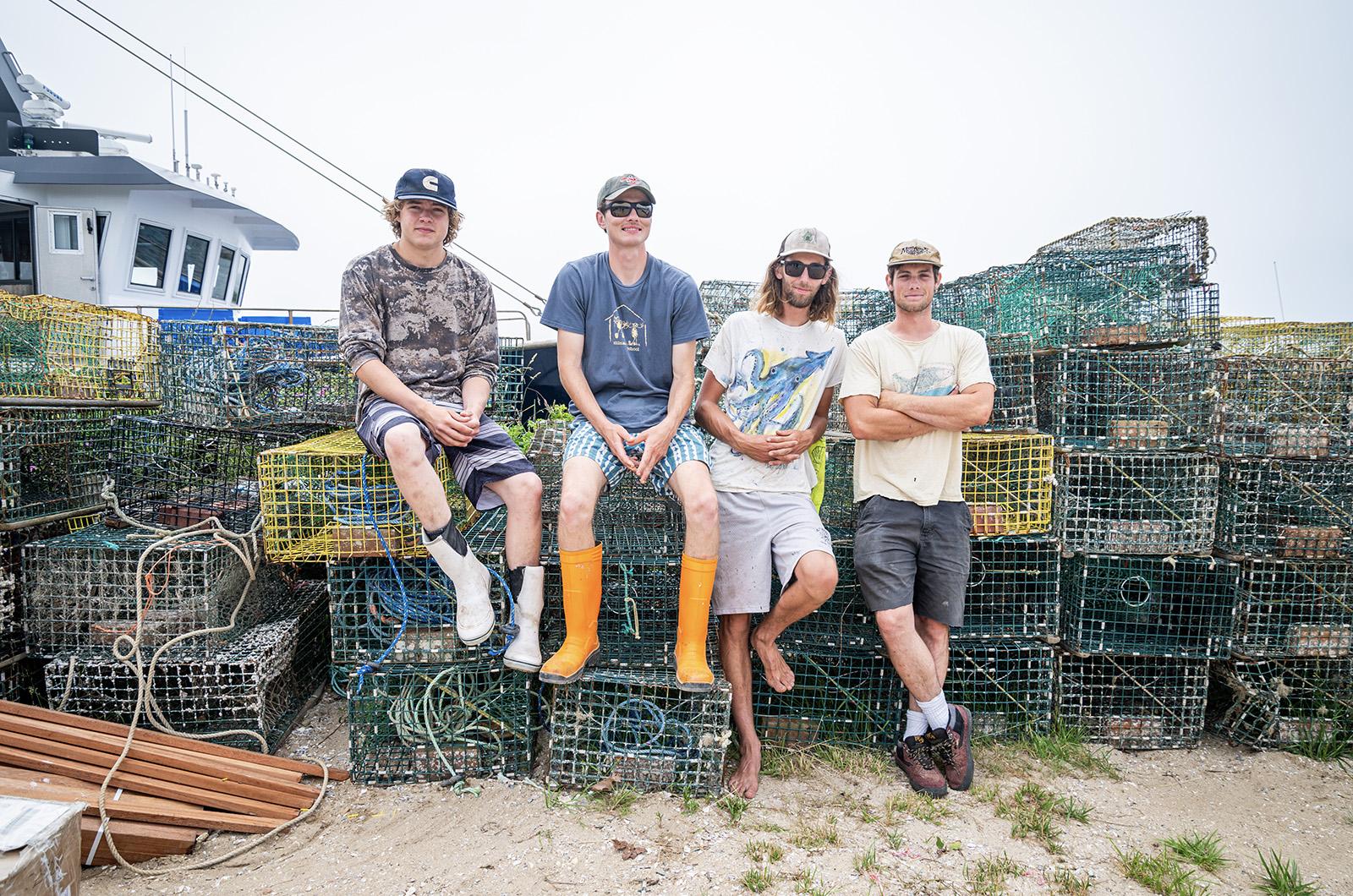
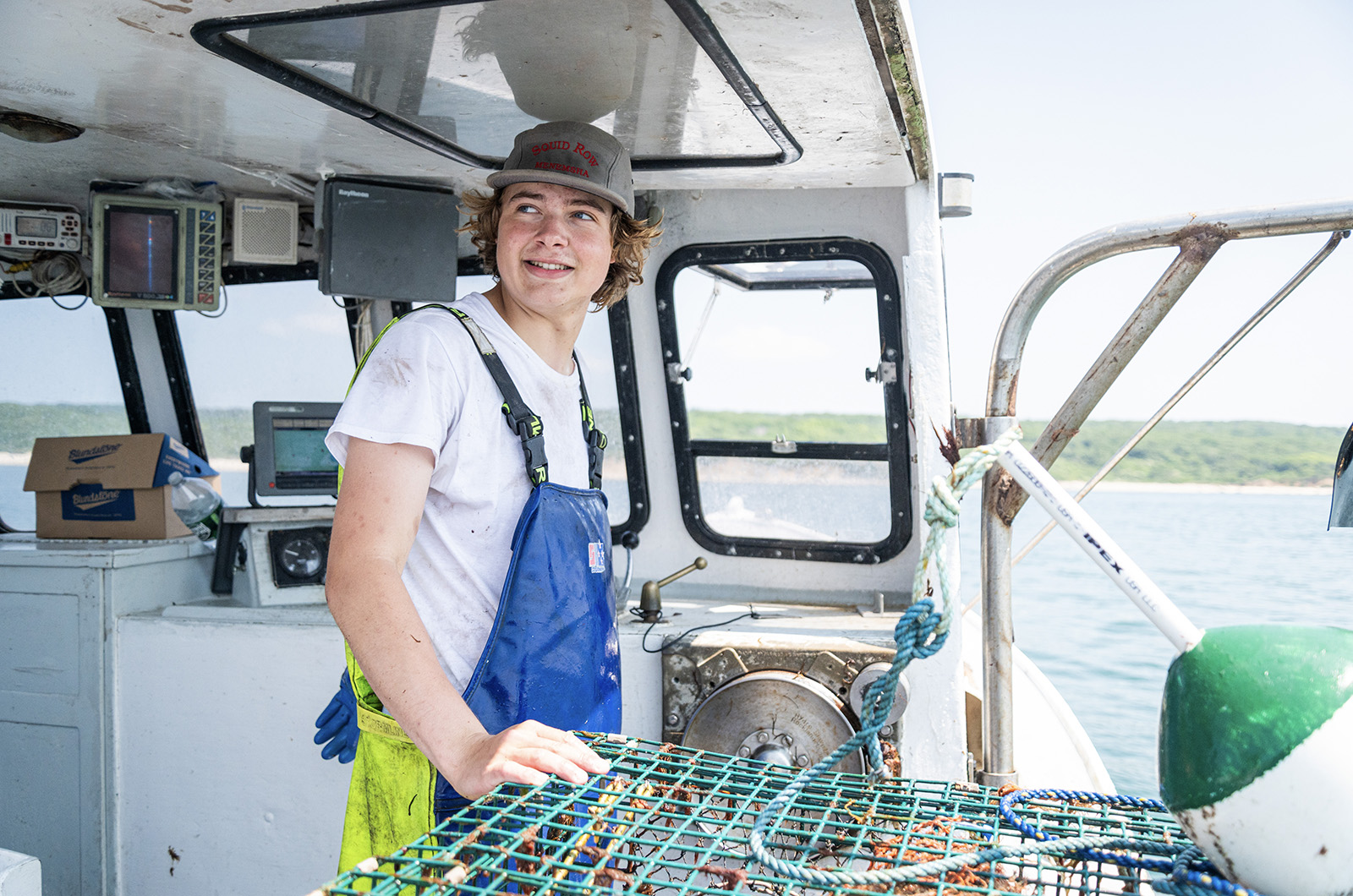
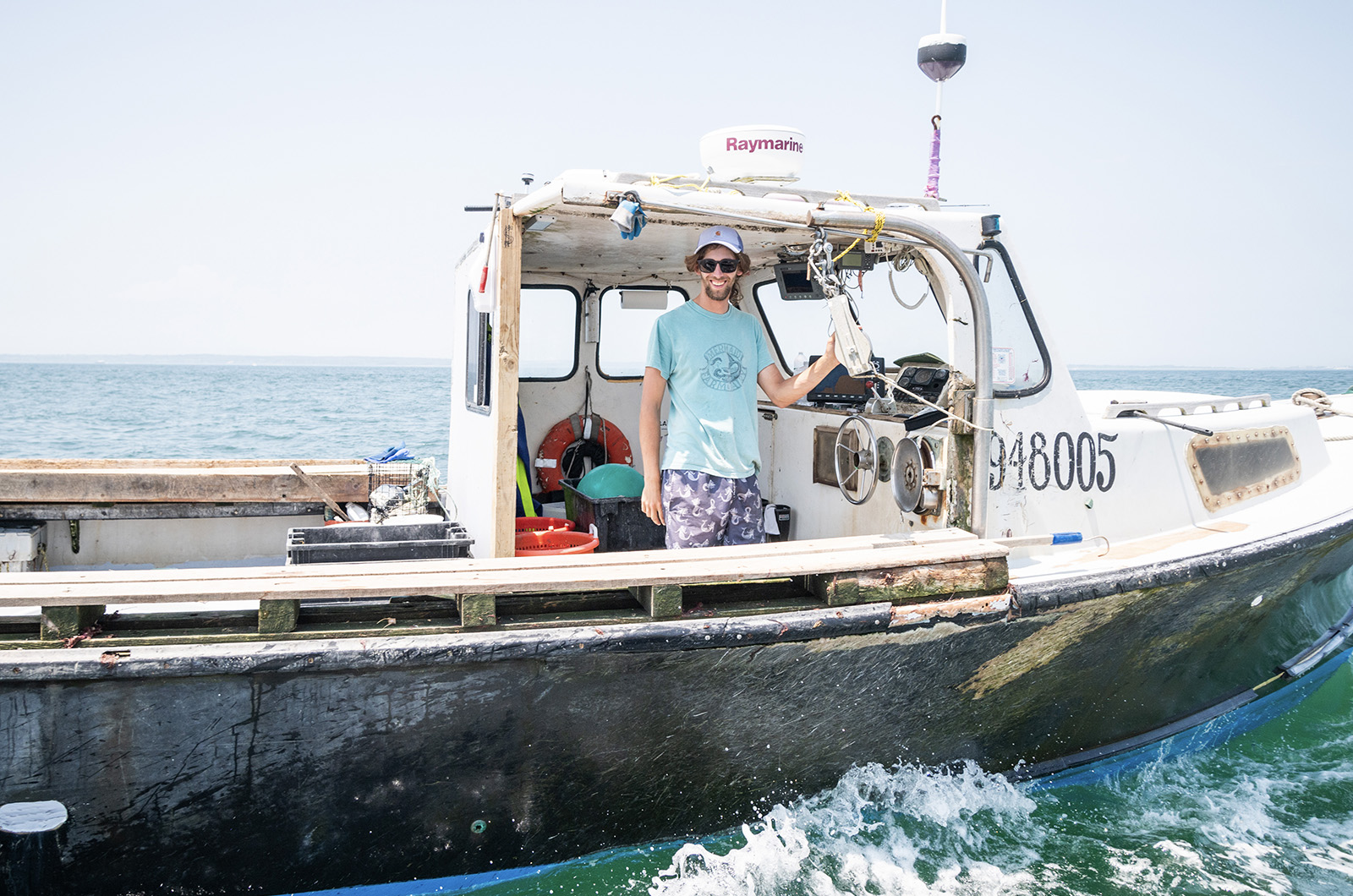
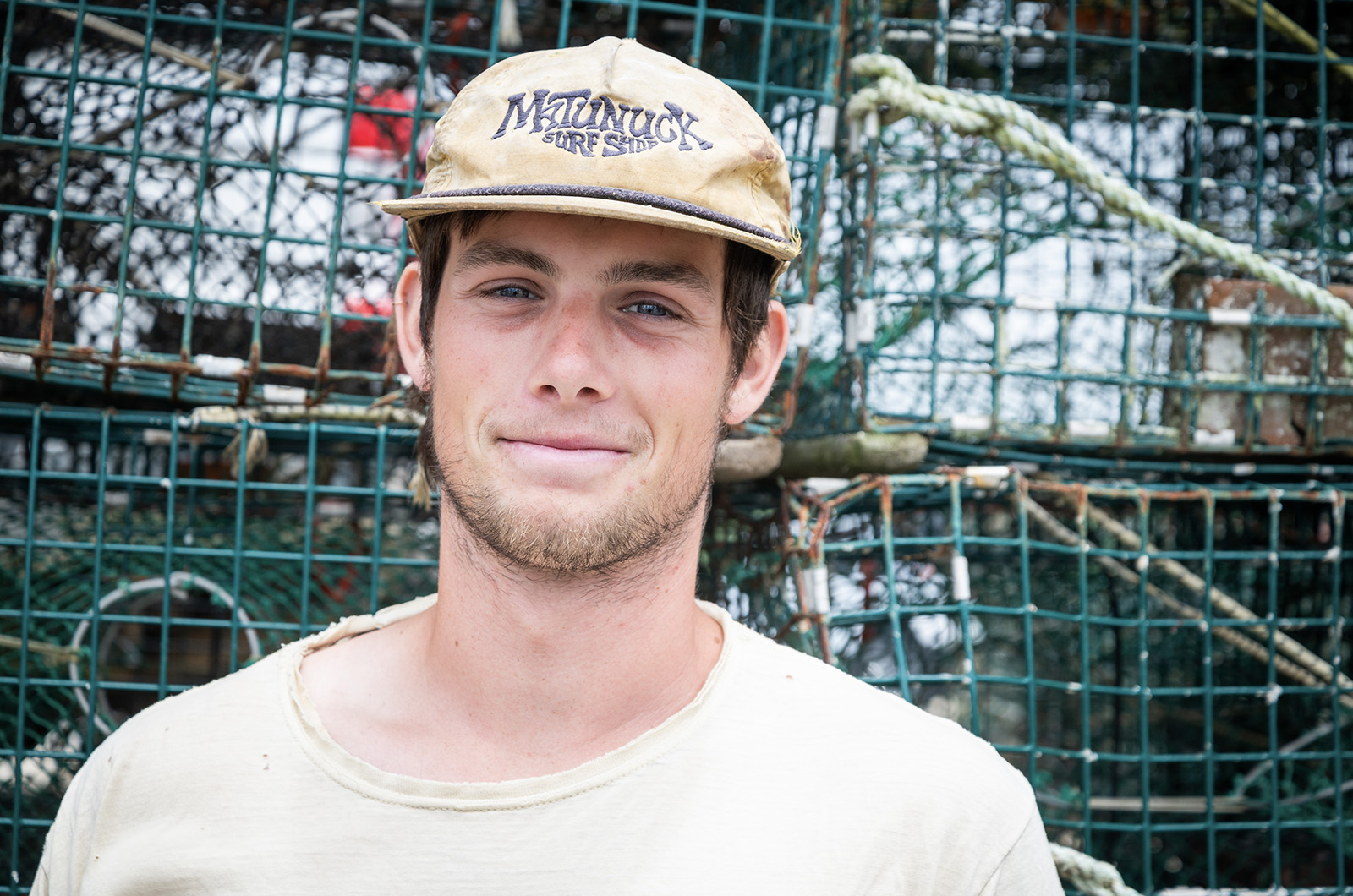
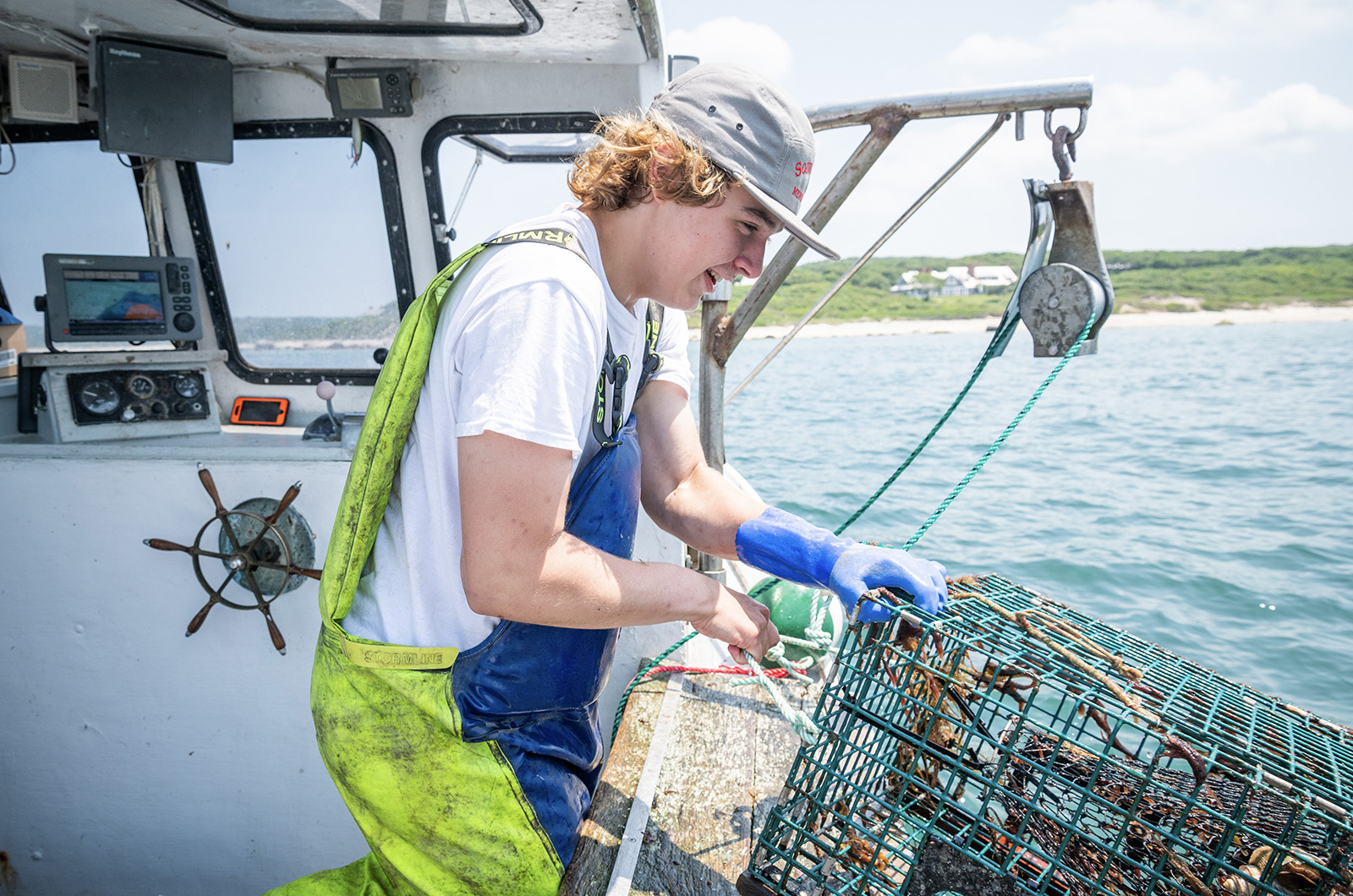
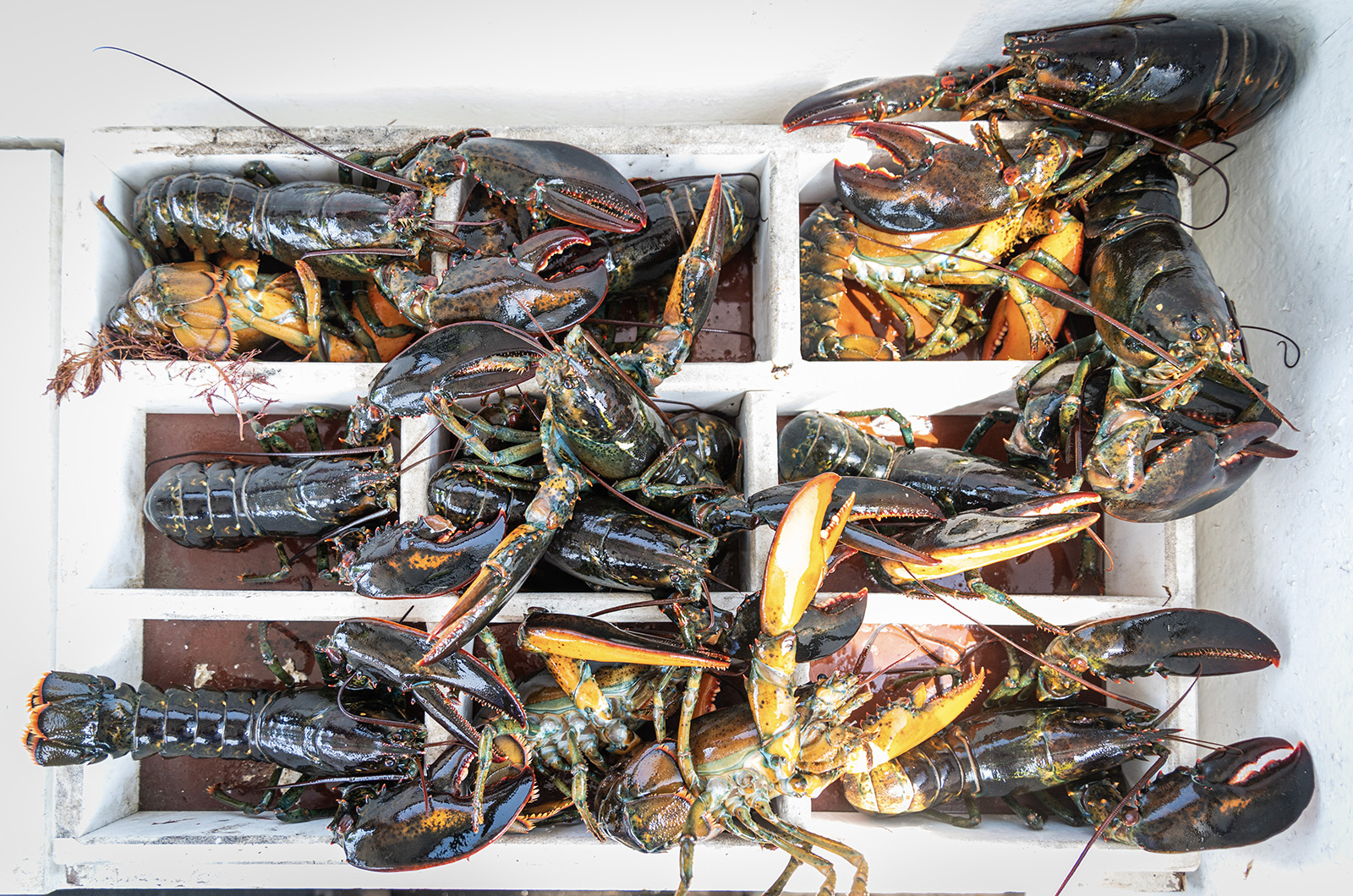





Comments (28)
Comments
Comment policy »